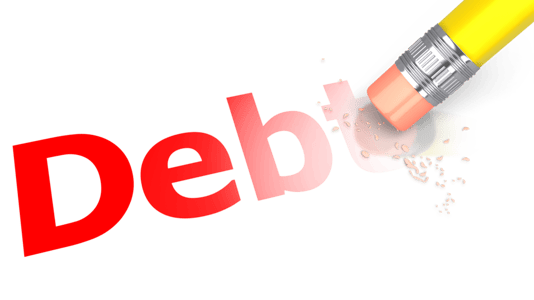There are two different kinds of debt, essential and non-essential. Your essential debts are your necessary assets such as your mortgage/rent, auto, or education loans, etc. Non-essential debts are things such as your credit card charges or loans for items that decline in value.
No one enjoys being knee deep in debt. But, it’s pretty easy to over spend when we use a credit card rather than cash for our purchases. Although it won’t be easy, there are ways to curb your spending habits so that you can chip away at your debt and keep it under control. If you’re ready to get your debt under control, here are a few tips for you to consider.
won’t be easy, there are ways to curb your spending habits so that you can chip away at your debt and keep it under control. If you’re ready to get your debt under control, here are a few tips for you to consider.
Tracking your income and expenses. Put together a budget. Start tracking your income and all of your spending. You may soon discover that you have a lot of unnecessary and impulse spending every month that you have never given a thought too before making a budget.
You can save a little here and there by cutting back on some of your favorite daily lattes, pack your lunch for work, and cook dinner at home more often rather than going to a restaurant. All of these little things really add up by the end of the month. By putting the amount you save each month into a savings account, you could soon reduce your debt by putting that amount towards a credit card or loan payment.
Think about it. Only use credit when necessary. If you decide you need to incur debt, think about it for a few days. Will you be able to pay off the debt using next month’s income? Do you really need that item enough to charge it or take out a loan? Can it wait until you save enough to pay cash for it? You may even change your mind by the time you save enough to pay for the item/ service and you will be glad you waited on the purchase.
Emergency savings. Everyone needs an emergency fund. Murphy’s Law tells us that eventually something is bound to come up. It may be in the form of an expensive auto repair, a new roof, a natural disaster, or even a job loss. It’s good to have those extra funds to get you through whatever emergency comes up. It would be advisable to have at least enough saved to cover your expenses for 6 months.
We all know that staying out of debt is sometimes just impossible, but when it is possible, make the effort to save for a rainy day. When that rainy day comes, you will be prepared and glad you had an emergency fund to count on.
Staying out of debt isn't always exciting or easy, but the long-term benefits are substantial. Contact our office at (866) 497-9761, if you'd like to learn more on how you can save by reducing your debt obligations.
.png?width=120&height=77&name=Summit-Virtual-CFO_color_rgb%20(1).png)













